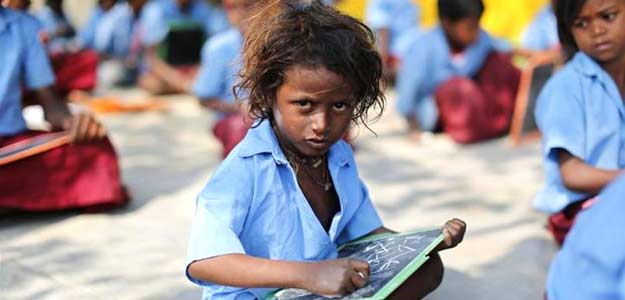
By Anurit Kanti
The Social Progress Index is an aggregate index of social and environmental indicators that capture three dimensions of social progress: Basic Human Needs, Foundations of Wellbeing, and Opportunity.
Last week, the Social Progress Index for 2017 was made live by the Social Progress Imperative. In the Social Progress Tier, India comes in the Lower-Middle tier, along with China, Nepal, Mongolia, Kazakhstan and other Central Asian countries.
The Social Progress Index is an aggregate index of social and environmental indicators that capture three dimensions of social progress: Basic Human Needs, Foundations of Wellbeing, and Opportunity. The 2017 Social Progress Index includes data from 128 countries on 50 indicators.
India with an aggregate score of 58.39 is Rank 93 among the 128 countries.
With a score of 66.74 for Basic Human Needs, 61.15 for Foundations of Wellbeing and 47.29, India scores well on Access to Basic Knowledge (85.57), Nutrition and Basic Medical Care (84.64) and scores an average on Personal Rights (72.30), Shelter (64.42) and Personal Safety (60.35).
However India scores very poorly on Tolerance and Inclusion (26.36), Access to Advanced Education (32.05), Environmental Quality (47.01), Health and Wellness (55.91) and Access to Information and Communications (56.10).
With respect to specific indicators, India ranks poorly (above 100 out of 128 countries) on depth of food deficit (rank 100), access to improved sanitation facilities (rank 103), political terror (rank 113), mobile telephone subscriptions (rank 108), press freedom index (rank 102), premature deaths from non-communicable diseases (rank 100), suicide rate (rank 111), outdoor air-pollution attributable deaths (rank 125), biodiversity and habitat (rank 108), early marriage (rank 112), tolerance for immigrants (rank 110), discrimination and violence against minorities (rank 104), religious tolerance (rank 121), community safety net (rank 121), women’s average years in school (rank 103) and inequality in attainment of education (rank 110).
India only shows up in the top 10 for number of globally ranked universities, for which it is rank 9. As it can be clearly seen, India needs to work a lot more to improve its social and environmental indicators, despite being one of the fastest economically growing countries in the world.
With respect to the broad indicators of environmental quality and tolerance and inclusion, India has an abysmal global ranking of rank 116 (environmental quality) and rank 123 (tolerance and inclusion). This shows that India has to work a lot in improving inclusive conditions for minorities and immigrants, as well as take effective measures to safeguard its environment.
According to Sudhir Sinha, CEO of CSR Inc, “Although we have succeeded in removing from India some of the social sins such as untouchability, scavenging, child and widow marriages, and Sati pratha, etc, we have yet to achieve equality, casteless & classless society, and greater & deeper respect for humanity. While, with GDP growth, we are progressing economically, we wrongly assume that we are progressing socially too. No, we are not. The gap between rich and poor has been increasing. Rather, we have degenerated socially on these parameters under the influence of economic progress.”
On an absolute level, India has moved up from the tier of “Low Social Progress” to “Lower Middle Social Progress.”
The progress is mainly driven by the advancement country has experienced in two components: Shelter and Access to Information and Communication. The liveable conditions have significantly advanced, despite relatively lower access to adequate living conditions for a majority of its population.
Source: BW Businessworld

Leave a Reply